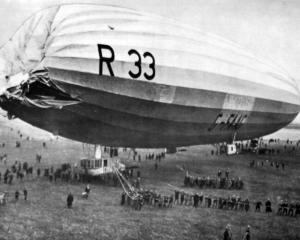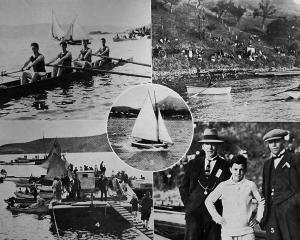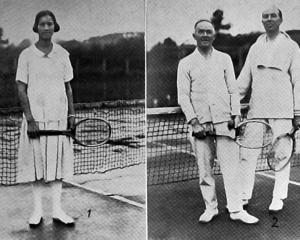He lectured at the Early Settlers' Hall on Saturday night, and will leave by train this morning for the Bluff, en route to Australia, where he will visit Melbourne, Adelaide, Perth, and other towns.
He will leave Australia early in July. During his stay in Dunedin Sir Robert was the guest of Mr and Mrs P. R. Sargood, of Newington.
It was just about 3.30 p.m. when Lieutenant-general Baden-Powell, accompanied by Lieutenant-colonel Cosgrove and Major Murray, walked on to the parade ground amidst the welcoming cheers of the several thousand assembled people.
The scene was one of the utmost orderliness, detachments from the 4th Regiment (Otago Hussars) had been detailed to keep the people from going where they should not go, and they did their work so well that there was an entire absence of confusion.
The enclosed stand was completely filled while the open stand was partially so, and along the front railings of the ground were seats occupied by his Worship the Mayor (Mr J. Wilson), city councillors, and others.
As the general arrived on the ground the Cadets came to the general salute, the Scouts "presented staves", and the band played a few bars of a slow march.
Immediately following on this came the Scouts' "rally", which consisted of the various lines forming the crescent running in at the reviewing officer, as at a common enemy, the members of each group giving forth its own peculiar cry.
As soon as the general was completely surrounded, the boys gave him a welcome haka, which found considerable favour with the crowd.
The general then inspected the parade, talking to the different officers as he went round, and after this took up his station at the saluting base and inspected the boys as they marched past to the music alternatively of the band and of the Albany Street School Fife and Drum Band. The battalions were then formed up with the Boy Scouts and the Girl Scouts in the centre.
Addressing the boys, Lieutenant-general Baden-Powell said that he was glad to see such a strong parade and to notice how smartly they had turned out.
He complimented them on their dress, because the "shorts" were much better and more practical than anything else he had so far seen.
He was glad to see the Scouts in such numbers and so many of them wearing badges of efficiency. That showed that they not only played the games that Scouts played, but were working hard as well.
The General concluded with a word of praise to the Girl Scouts, whom he had already seen.
- ODT, 3.6.1912












